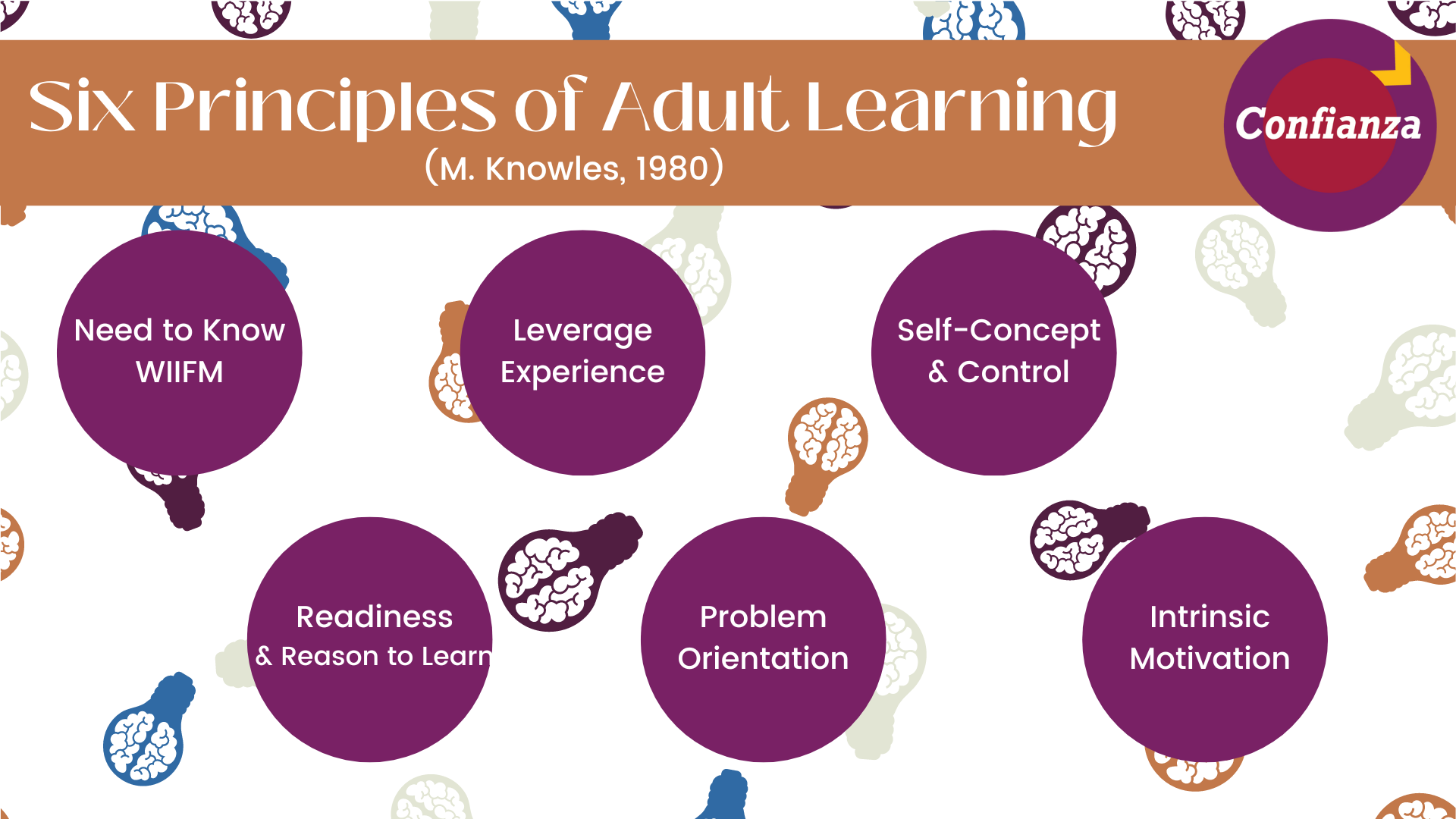What You Need to Know: Six Principles of Adult Learning
by Maria Lee
Introduction
Malcolm Knowles, the American educator, is best known for the terminology andragogy as the art and science of adult learning. According to the article “Six Principles of Andragogy – Malcolm Knowles,” author Wil states Knowles defined the differences between adults (andragogy) and child learning (pedagogy). These differences are now referred to as the Six Principles of Andragogy.
What are the Six Principles of Andragogy?
Wil lists the Knowles six assumptions for designing adult learning, and they are:
Adults need to know why they need to learn something
Adults need to build on their experience
Adults need to feel responsible for their learning
Adults are ready to learn if training solves an immediate problem
Adults want their training to be problem focused
Adults learn best when motivation comes intrinsically
Wil looked at each of these assumptions.
The Six Principles of Andragogy
1 - Need to Know
The reason adults need to know they are being asked to learn is they want to understand “what is in it for me” (WIIFM)?” Wil notes adults are much more likely to pay attention to the WIIFM when they understand it. When you inform adults in advance of the purpose of an activity, why they should pay attention, and how it will personally benefit them, they will be willing to learn the activity.
2 - Experience
Adult learners come with experience, and with this experience it should provide the basis for most of the learning activities. Wil believes it is your job to tie their experience to the new material. In addition, Adult learner’s experience adds to the classes’ knowledge base. Wil (2020) states that “leveraging this experience can be a motivator for you learners.” (pg. 3) Wil emphasizes that the information you share with your learners is up to date and unbiased.
3 - Self-Concept
When you give adults the autonomy to control over their learning, they can thrive on self-direction. Wil believes online training is an excellent tool for providing this control. This works best with the fourth principle of andragogy in place, readiness.
4 - Readiness
When training can help adults solve an immediate real-life problem, this is when they learn best. How motivated are you when you need to learn a new process to complete your work? You are probably motivated if you want to keep your job. Wil (2020) concludes that “motivation increases in adults when there is an immediate reason to learn.” (pg. 5) This leads us to the fifth principles of andragogy, problem orientation.
5 - Problem Orientation
Adults want to learn specific knowledge, skills and/or abilities to solve a problem rather than some generic content. They are much more likely to learn when they feel the training can help them solve a problem immediately. Wil (2020) notes “To motivate them, help them identify the problem they will solve with the training.” (pg. 6) It will help adults focus as much as possible on learning.
6 - Intrinsic Motivation
The sixth principles of andragogy are finding the learner’s internal motivator. Wil suggests adults learn best when motivation comes internally, rather than externally. The best way to do this is to find adults’ internal motivators. Wil notes intrinsic motivators are knowing something that makes adults feel better about themselves or giving them more opportunities to grow professionally. Wil believes these types of motivators have longer term motivational power.
Conclusion
Wil suggests keeping the six principles of andragogy in mind will help develop types of training programs that will draw in your audience. When you do this, it will help you do what all learning and development professionals want to do, change behavior. So, the next time you are developing a course keep the Six principles of Andragogy in mind.
Reference
Wil. (2020, February 22). Six Principles of Andragogy – Malcolm Knowles

